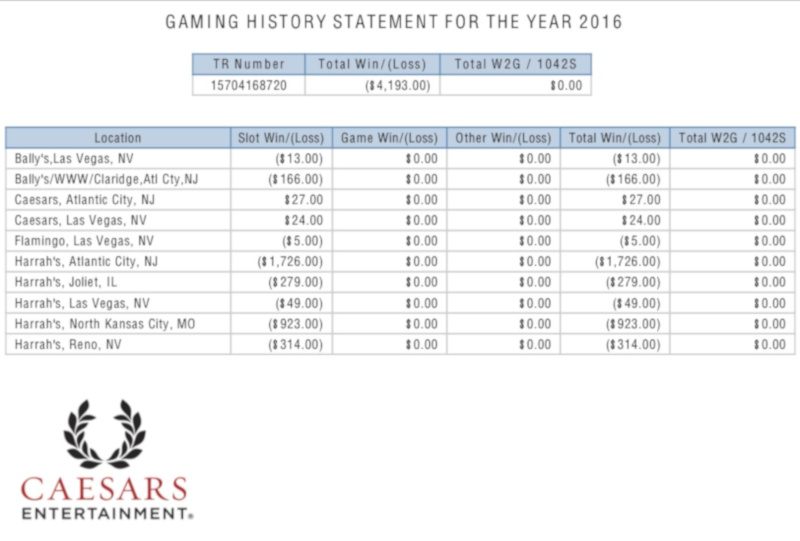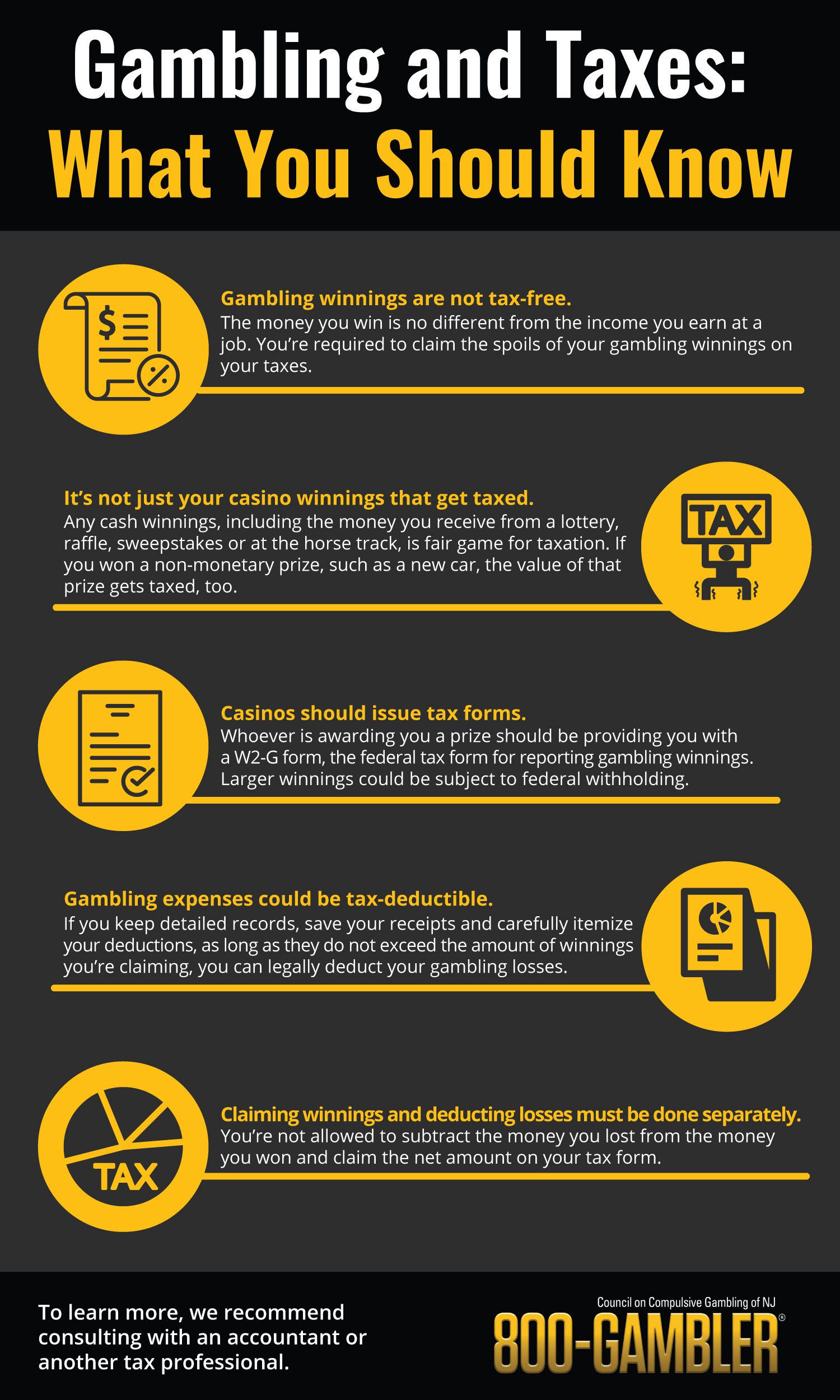Claiming Gambling Losses Against Winnings
Posted By admin On 01/08/22Gamblers understand the concept of win some, lose some. But the IRS? It prefers exact numbers. Specifically, your tax return should reflect your total year’s gambling winnings – from the big blackjack score to the smaller fantasy football payout. That’s because you’re required to report each stroke of luck as taxable income — big or small, buddy or casino.

Gambling Losses May Be Deducted Up to the Amount of Your Winnings Fortunately, although you must list all your winnings on your tax return, you don't have to pay tax on the full amount. You are allowed to list your annual gambling losses as an itemized deduction on Schedule A of your tax return. Oct 23, 2020 This interview will help you determine how to claim your gambling winnings and/or losses. Information You'll Need. Your and your spouse's filing status. Amount of your gambling winnings and losses. Any information provided to you on a Form W-2G.
If you itemize your deductions, you can offset your winnings by writing off your gambling losses.
This interview will help you determine how to claim your gambling winnings and/or losses. Information You'll Need. Your and your spouse's filing status. Amount of your gambling winnings and losses. Any information provided to you on a Form W-2G. The amount of gambling losses you can deduct can never exceed the winnings you report as income. For example, if you have $5,000 in winnings but $8,000 in losses, your deduction is limited to $5,000. You should also keep receipts, payout slips, wagering tickets, bank withdrawal records, and statements of actual winnings. You may also write off travel expenses associated with loss, so hang on to airfare receipts. Use TaxAct to file your gambling wins and losses. We’ll help you find every advantage you’re owed – guaranteed.
It may sound complicated, but TaxAct will walk you through the entire process, start to finish. That way, you leave nothing on the table.
How much can I deduct in gambling losses?
You can report as much as you lost in 2019 , but you cannot deduct more than you won. And you can only do this if you’re itemizing your deductions. If you’re taking the standard deduction, you aren’t eligible to deduct your gambling losses on your tax return, but you are still required to report all of your winnings.
Where do I file this on my tax forms?
Let’s say you took two trips to Vegas this year. In Trip A, you won $6,000 in poker. In the Trip B, you lost $8,000. You must list each individually, with the winnings noted on your return as taxable income and the loss as an itemized deduction in Schedule A. In this instance, you won’t owe tax on your winnings because your total loss is greater than your total win by $2,000. However, you do not get to deduct that net $2,000 loss, only the first $6,000.
Now, let’s flip those numbers. Say in Trip A, you won $8,000 in poker. In Trip B, you lost $6,000. You’ll report the $8,000 win on your return, the $6,000 loss deduction on Schedule A, and still owe taxes on the remaining $2,000 of your winnings.
What’s a W-2G? And should I have one?
A W-2G is an official withholding document; it’s typically issued by a casino or other professional gaming organization. You may receive a W-2G onsite when your payout is issued. Or, you may receive one in the mail after the fact. Gaming centers must issue W-2Gs by January 31. When they send yours, they also shoot a copy to the IRS, so don’t roll the dice: report those winnings as taxable income.
Don’t expect to get a W-2G for the $6 you won playing the Judge Judy slot machine. Withholding documents are triggered by amount of win and type of game played.
Expect to receive a W-2G tax form if you won:
- $1,200 or more on slots or bingo
- $1,500 or more on keno
- $5,000 or more in poker
- $600 or more on other games, but only if the payout is at least 300 times your wager
Tip: Withholding only applies to your net winnings, which is your payout minus your initial wager.
What kinds of records should I keep?

Keep a journal with lists, including: each place you’ve gambled; the day and time; who was with you; and how much you bet, won, and lost. You should also keep receipts, payout slips, wagering tickets, bank withdrawal records, and statements of actual winnings. You may also write off travel expenses associated with loss, so hang on to airfare receipts.
Use TaxAct to file your gambling wins and losses. We’ll help you find every advantage you’re owed – guaranteed.
More to explore:
Claiming Gambling Losses Against Winnings Against
We doubt that anyone ever woke up thinking, “Gee, I hope I get audited by the IRS this year”. An IRS audit could easily be one of the worst things that could happen to you this year. So if you want to avoid receiving that ominous letter from the IRS that your 2015 tax return is being audited here are seven red flags you need to totally avoid.
Not reporting all of your taxable income
Those 1099’s and W-2s you received this past January? You weren’t the only one that got them. The IRS got them too. It’s important to make sure you report all of the required income on your return. The computers used by the IRS are pretty darn good at matching the numbers on your return with the numbers on your 1099s and W-2s. If they turn up a mismatch this will create a red flag and the IRS computers will spit out a bill. If those darn computers do make a mistake and you receive a tax form that shows income that wasn’t yours or lists incorrect amounts of income, you will need to get the issuer to file the correct form with the IRS. And what about that income you earned on those side jobs? In most cases you should have received a 1099 documenting your earnings. If not, this is definitely a case where it’s better to be safe than sorry and report it.
Taking deductions that are higher than average
If the IRS spots deductions on your return that are disproportionately large in comparison with your income, it may pull your return for review. For example, a very large medical expense –again out of proportion to your income – could cause a red flag. However, if you do have the documentation to support the deduction then don’t be afraid to claim it.
Claiming really big charitable deductions
Charitable deductions can be a great write off. Plus, when you contribute to a charity it can make you feel all fuzzy and warm inside. However, if those deductions are disproportionately large in comparison with your income, it will raise a red flag. The reason for this is because the IRS knows what is the average charitable deduction for people at your level of income. Did you donate some very valuable property? In this case we hope you got an appraisal for it. Did you make a non-cash donation over $500? Then you better make sure you file form 8283. if you don’t file this form or if you don’t have an appraisal supporting that big donation you’ll become an even bigger target for auditing.
Claiming Gambling Losses Against Winnings Jackpots
Claiming big gambling losses or not reporting gambling winnings
If you’re a recreational gambler you must report your winnings as “other income” on the front page of your 1040 form. If you’re a professional gambler you will need to report your winnings on Schedule C. If you don’t report gambling winnings this can draw the attention of the IRS – especially in the event that the casino or other venue reported your winnings on form W-2G. It can also be very risky to claim big gambling losses. In fact, what you should do is deduct your losses only to the extent that you report your gambling winnings. For example, if you were to report you had won $5000 gambling but had losses of $20,000, this could cause a red flag. Also, only professional gamblers can write off the costs of meals, lodging and other expenses related to gambling. And the surest way to invite an audit is by writing off what you lost at gambling but no gambling income. If you’ve done any of these things, or are worried about some other common tax return mistakes, it might be wise to file an amended tax return and account for those wins or losses correctly.

Writing off a hobby as a loss

You will dramatically increase the odds of “winning” an IRS audit if you file a schedule C showing big losses from any activity that could be considered a hobby such as jewelry making, coin and stamp collecting, dog breeding, and the like. IRS agents are especially trained to ferret out people who improperly deduct losses associated with a hobby. You must report any income your hobby generated or whatever but can then deduct your expenses up to that income level. But the IRS will not allow you to write off losses from a hobby. So if you want to write off a loss you must be running your hobby as if it were a business and must have the reasonable expectation of generating a profit. As an example of how this works if your hobby generates a profit in 3 out of every 5 years then the IRS will presume that you’re actually in business to make a profit unless it can prove something to the contrary. Of course, if you’re unfortunate and win the audit lottery the IRS will make you prove that you do have a legitimate business and that it’s not just a hobby. So make sure you keep all documents that support your expenses.
If you report income from self-employment of $100,000 or more
Let’s suppose that you’re self-employed, had a really great year and had earnings of $100,000 or more you are reporting on schedule C. This is likely to trigger an IRS audit because according to the IRS people who file a schedule C are more likely to under report their income and overstate their deductions. What this means is that if you earn $100,000 or more and are reporting it on schedule C you’ll need to make sure you have the documentation necessary to support your deductions and again, make sure you report all your income very accurately.
If you work in certain industries
The IRS knows based on past audit experience that there are certain activities or industries that have a higher incidence of what’s technically called noncompliance but really means cheating on their taxes. Included in this group are the tax returns of air service operators, gas retailers, auto dealers, attorneys and taxi operators. So, if you’re employed in one of these industries or activities and don’t want to suffer an IRS audit, it’s best to follow the old adage that honesty is the best policy.